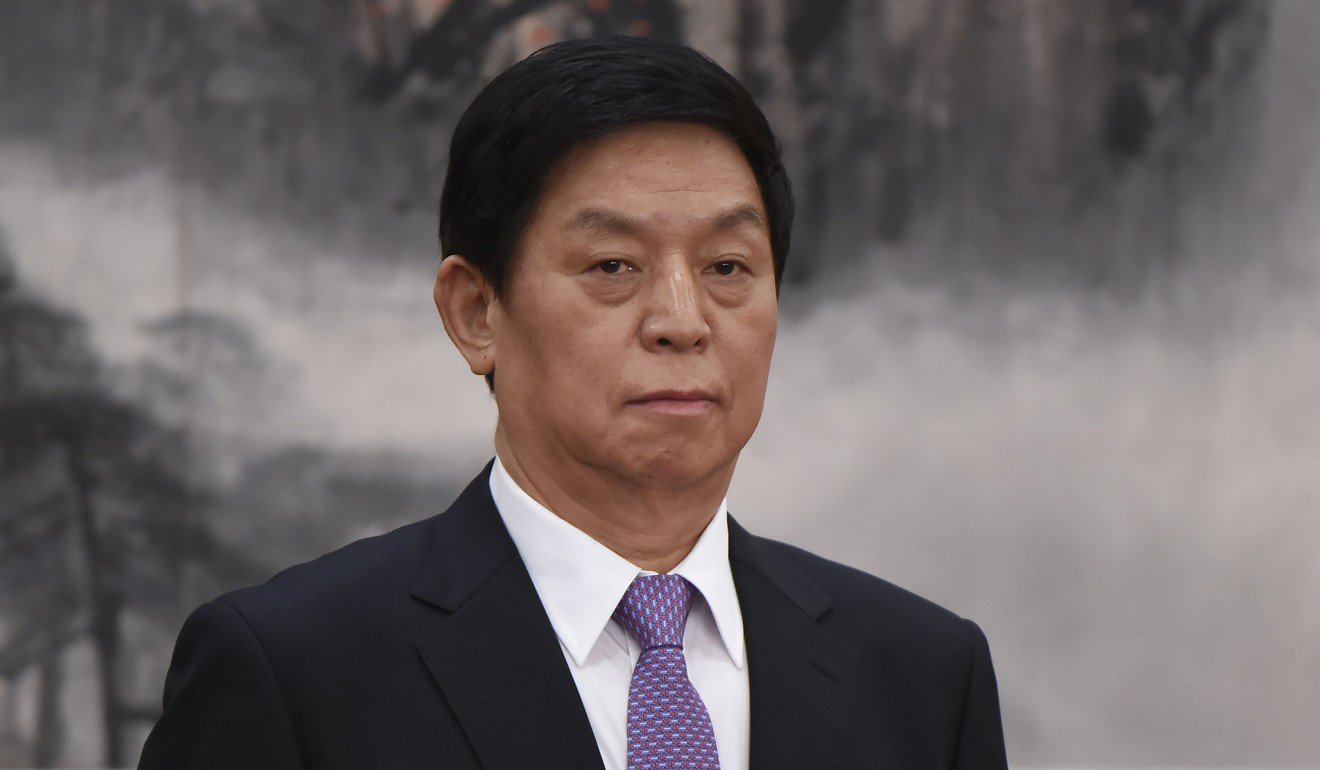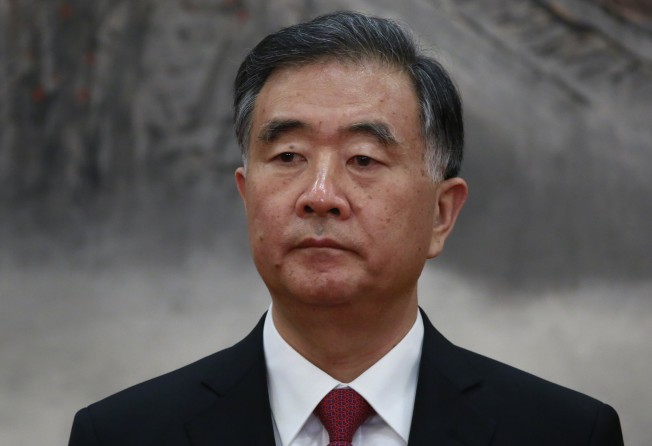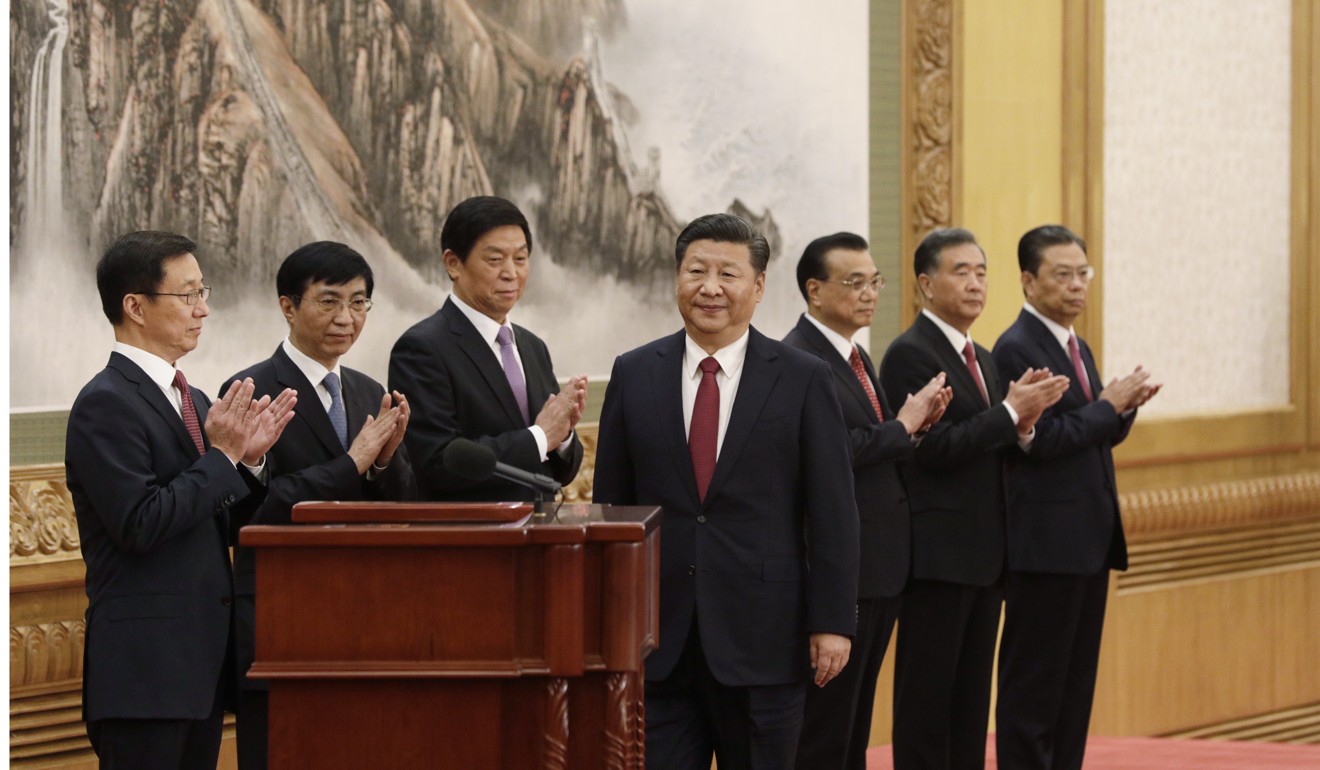
A stranger and one familiar face: pair set to lead Chinese policy on Hong Kong are a mixed bag
Wang Yang and Li Zhanshu, the most senior of the new faces elevated to the apex of China’s leadership, likely to run city affairs

Li Zhanshu and Wang Yang, the most senior of the new faces elevated to the apex of China’s leadership on Wednesday, look set to take charge of Hong Kong affairs, judging by recent precedent.
One has yet to establish deep links while the other is a familiar face to Hongkongers.
Given his previous stints at the helm of neighbouring Guangdong province, Wang is well known in the city’s elite circles. On the other hand, Li, who spent the last term working in President Xi Jinping’s inner circle, has made no public remarks on Hong Kong and is relatively unknown to even pro-Beijing politicians.
Who among the seven Politburo Standing Committee members will chair the Hong Kong working group has yet to be announced. But if Xi sticks to the practice of the past five years of appointing the chairman of the National People’s Congress to lead the central government’s policies on Hong Kong, Li would be the point man.
Going by his third placing in the hierarchy announced on Wednesday, he is the presumptive chairman of the congress, likely to take over from Zhang Dejiang next March.

Similarly, by hierarchy, Wang is expected to become the chairman of the Chinese People’s Political Consultative Conference (CPPCC), the nation’s top political advisory body.
The 203 Hong Kong delegates to the outfit, which is now vice-chaired by former city chief executives Tung Chee-hwa and Leung Chun-ying, have been tasked by leaders in recent years with improving their liaison work in the city.
“In my opinion, Wang is the most appropriate figure [to lead the Hong Kong group]. His familiarity with Hong Kong is second only to Xi himself,” said Chan Wing-kee, a standing committee member of the CPPCC.
When he was party chief in Guangdong, Wang signed the first agreement of cooperation between the province and Hong Kong, facilitating regional economic integration.
But Lau Siu-kai, vice-chairman of the Chinese Association of Hong Kong and Macau Studies, a Beijing-affiliated think tank, suggested that if Xi appointed Li and put him in charge of Hong Kong affairs, the president would continue to have a very strong say on the city, given their close ties. While it could be read as a tighter grip, there could also be an opportunity for Hong Kong.
“If Hong Kong expresses certain needs through Li, it is going to be very effective. His sway over Xi is unparalleled,” Lau said.

The extent to which Li helped devise Xi’s Hong Kong policies in the past five years is difficult to decipher, due to what observers say is the opaque nature of the Communist Party’s internal workings.
However, Li participated in sessions during which Chief Executive Carrie Lam Cheng Yuet-ngor and her predecessor, Leung, met Xi in Beijing.
Together with his new Politburo Standing Committee colleague, Wang Huning, Li also accompanied Xi on his trip to Hong Kong in June and July, when the president drew “red lines” over calls for Hong Kong independence during the 20th anniversary of the city’s return to Chinese sovereignty.
Li had conversations with Hong Kong’s principal officials while attending some events hosted by the local government, according to a well-placed source, who added: “He is very positive about Hong Kong.”
The sense of positivity towards the city was also portrayed by the limited mainland press coverage of Li’s interaction with a Hong Kong business delegation in 2008 when he was provincial chief of northeastern Heilongjiang.
He personally greeted the businessmen, led by Lau Chung-ming, a textiles exporter who recalled Li’s “friendly, casual” conversations.
“While I couldn’t go into the details of what we chatted over, I am sure his style of open-minded communication is something Hong Kong’s pan-democrats should give him a chance for,” Lau said. “In fact, learning how to deal with the opposition camp is the first thing Li has to grasp.”
According to Lau, the former Heilongjiang chief came up with a new idea to boost bilateral business ties by leading trade delegations to Hong Kong, a model he later copied in Guizhou while party chief there.
“He has a clear view how Hong Kong’s business opportunities could help inner, less developed provinces,” Lau said.
But Li would have to make himself better known, not just to the pan-democrats but also the pro-establishment camp.
CPPCC standing committee member Chan said: “I know nothing about Li Zhanshu.”
Xi’s future policies on Hong Kong have been well defined, after he declared China’s “comprehensive jurisdiction” over the city and included it in the nation’s Greater Bay Area development plan at the start of the 19th party congress last week.
Meanwhile, Hong Kong’s leader welcomed Xi’s latest remarks on the city as “encouraging”.
“Be it the summary of the past five years’ accomplishments or looking forward, it raises people’s hopes,” Lam told Chinese financial magazine Caixin.